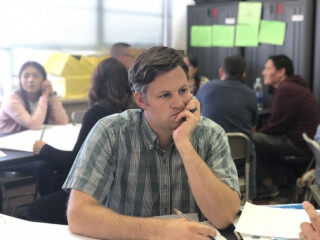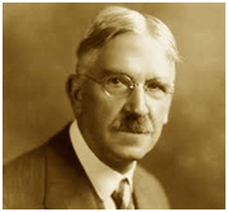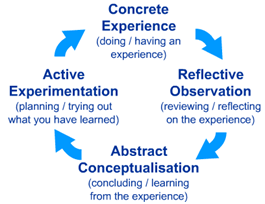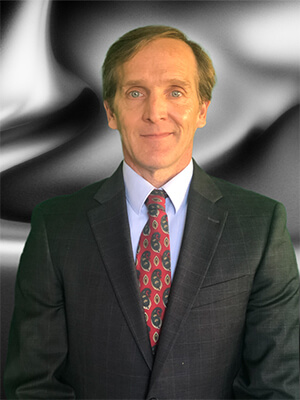Being a reflective teacher is more than just thinking about teaching and learning. Being a reflective teacher means cultivating an acute awareness of what impacts learning and being able to act without attachment.
TESOL Trainers can provide powerful PD that helps educators understand the science behind reflective teaching practices and simple strategies to continuously raise one's own awareness level of what happens in and among the individual students in the classroom.

TESOL Trainers can help teachers develop reflective teaching practices by providing them with the knowledge, attitude, skills, and awareness to be fully awake and fully prepared meet the metacognitive challenges of the 21st century educator. In order to embrace growth, teachers must become skilled at asking themselves three important questions:
The Experiential Learning Cycle is critical to consciously developing positive teaching practices. Our blog has an extensive post on the relationship between the ELC and the SIT TESOL Certificate Course. You can also read about the benefits of the ELC and teacher development here.
John Dewey, referred to by some as the Father of Experiential Education, identified four factors of reflection as:

Giving teachers the tools and the support they need to become practitioners of reflective teaching empowers them to make conscious changes in their teaching practice and excites them about teaching others.
Educators see teacher reflection as a means of refining one`s understanding and ability to reach all learners. We are all aware of the power of reflection in our daily lives and how it helps students become independent learners. Indeed, as Caleb Gattegno said, "only awareness is educable".
But when to reflect, how to reflect, and on what to reflect sometimes escapes us as we hurry through one class period to the next, the copier to the classroom, and the lunchroom to the playground. When teachers have time to reflect, they may not possess the observational tools to make the most out of their teaching experiences.
David Kolb built upon Dewey`s voluminous works and developed the Experiential Learning Cycle (ELC) as a model to capture and capitalize on experience and reflection.
He argued that everyone goes through a similar process in learning. He proposed the following four stages that represent the cycle of learning:

This Experiential Learning Cycle is the cornerstone of reflective teaching practices (even the What? So, What? Now, What? comes from Kolb’s ELC).
This cycle is also the foundation of our training model. TESOL Trainers uses the ELC to form the design and delivery of its professional development. Dr. Kongsvik and his team have years of experience with working with educational institutions in promoting reflective teaching practices. The best way to empower teachers is helping them empower themselves. Using the Experiential Learning Cycle is one of the best vehicles to get them there.
A little awareness goes a long a way. This is as true for the teacher as it is for their students. One beneficial way of empowering everyone is through this professional development on reflective teaching practices. The science of teaching has advanced as has our understanding of change.
TESOL Trainers can equip and empower your educators with the latest research-based tools to work smarter by harnessing the power of reflection. Paolo Freire stated that reflection with action is empty, near meaningless. Often times we ask teachers to reflect on some aspect of teaching and learning assuming they may know how to critically reflect and what to do with the summation of the reflection.
Dr. John Kongsvik will give your teachers concrete tools they can use to develop their own awareness, take charge of their own development, and empower themselves through change.

Become part of our TESOL network and gain access to valuable content!